Chair: Prof. Rosina Girones
Section of Microbiology, Virology and Biotechnology, Department of Genetics, Microbiology and Statistics, Faculty of Biology, University of Barcelona, Spain
Tel: +34 934021483
Email: rgirones[at]ub.edu
Board Members
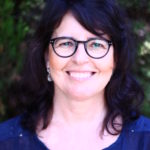
Rosina Girones is professor of Microbiology at the University of Barcelona, Spain, specialized in viruses. Dr Girones was a postdoctoral researcher at the Hepatitis Viruses Section, Laboratory of Infectious Diseases, NIH, USA and has been invited researcher in laboratories in Sweden and USA. Rosina Girones has been the Head of the Microbiology Department of the University of Barcelona and is, at the present, Coordinator of the Section of Microbiology, Virology and Biotechnology in the UB and team leader of the Laboratory of Viruses Contaminants of Water and Food (Vircont). The main area of interest is the study of classical and emerging viral pathogens and the development of new viral indicators and MST tools. Dr Girones is at the present working on the improvement and control of the microbiological quality of recycled water, irrigation water, food and superficial and ground water.
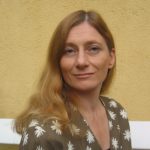
Past Chair: Prof. Regina Sommer
Medical University Vienna, Austria
E-mail: regina.sommer[at]meduniwien.ac.at
Regina Sommer is Associate Professor at the Medical University Vienna, Austria (Institute for Hygiene and Applied Immunology). She is head of the unit Water Hygiene where she is teaching, researching and running the accredited Laboratory and Inspection Body “Hygiene Vienna” (authorized by the Ministry of Health). Together with Prof. Andreas Farnleitner she serves as co-head of the Interuniversity Cooperation Centre ICC Water & Health in Vienna (www.waterandhealth.at). Regina is convenor of the Austrian drinking water commission and member of the Advisory Board for Bathing Water Hygiene of the Ministry of Health in Austria as well as of the Water Microbiological Advisory Board of the EU Commission.
Together with the Georg Hirschmann (Austrian Institute of Technology), Alexander Cabaj and Alois Schmalwieser (Department of Medical Physics, Veterinary University Vienna) and Thomas Haider (HAI-SO) Regina founded the “UV Team Austria” and the Water Test Centre Wiental with a Test Facility for UV disinfection systems (www.uv-team-austria). Regina has studied Food- and Biotechnology at the University of Natural Resources and Applied Life Sciences, Vienna, and did her PhD at the University Vienna. In 1999 she received the Venia docendi and was appointed as Associate Professor in 2000.
“The members of the IWA SG Health Related Water Microbiology supported and inspired me since I was a young scientist. Serving for our group enables me to give back some of the positive experiences, which I have gained”, Regina says.
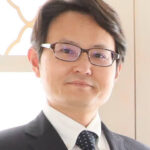
Vice Chair: Prof. Daisuke Sano
Environmental Water Quality Engineering Laboratory
Department of Civil and Environmental Engineering
Tohoku University, Japan
Tel: +81-22-795-7481
E-mail: Daisuke.sano.e1[at]tohoku.ac.jp
Dr. Daisuke Sano, Professor of Environmental Water Quality at Tohoku University, Japan, completed his PhD. in March 2003 at Tohoku University. In the PhD study, he discovered bacterial proteins that can interact with human virus particles from activated sludge microorganisms. Then, he took a Post-Doctoral Fellowship at Tohoku University (2003-2007) and University of Barcelona, Spain (2007-2009). As a postdoctoral fellow, he was involved in multiple projects with regards to the transmission pathway of norovirus, culture-independent evaluation of virus infectivity (3) and genotyping of human enteric viruses in environmental water. Then he got a tenure position (Associate Professor) at Hokkaido University, Sapporo, Japan, since 2009 and was managing a team of water and public health study, and discovered histo-blood group antigen-positive bacteria that could specifically capture human noroviruses. He moved back to Tohoku University in 2017 and is responsible for the research and supervision of international and domestic projects in the field of water and public health. Particularly, he is currently interested in the statistical modeling of enteric pathogens disinfection/removal, antibiotic resistance and water, and the impact of chemical contaminants on ecosystems.
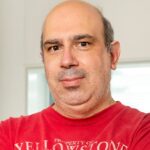
Secretary: Dr. Ricardo Santos
Technical University of Lisbon, Portugal
E-mail: ricardosantos[at]tecnico.ulisboa.pt
Dr. Ricardo Santos is currently a researcher at the Department of Nuclear Sciences and Engineering and at the Civil Engineering Research and Innovation for Sustainability Research Unit at instituto Superior Técnico and the head of the Water Microbiology Department of the Water Laboratory from Instituto Superior Técnico.
He obtained his PhD in Life Sciences at Queens University Belfast focusing in bacterial resistance and adaptation mechanisms. With almost 25 years of experience working in water quality, having as main topics of research, waterborne pathogens (bacteria, virus and protozoa), Source tracking markers, water scarcity and water reuse. Dr. Santos has been involved in several national and international research projects dealing with water quality, water safety plans, and health-related water microbiology
Current fields of interest include Microbial pathogens in water, Source tracking markers, novel methods for pathogen detection in the environment and microbial resistance and adaptation, among others.

Dr. Silvia Monteiro
Instituto Superior Técnico, Universidade de Lisboa
E-mail: silvia.monteiro[at]tecnico.ulisboa.pt
Sílva Monteiro is a researcher at Instituto Superior Técnico, Universidade de Lisboa. She received her Master’s degree at Instituto Superior Técnico and Ph.D at the University of Brighton, UK, focusing on source tracking, viral decay in wastewater, and approaches to infer viability through PCR. Sílvia is a chemist by training, but has since specialized in microbiology particularly in the field of environmental virology, antimicrobial resistance and source tracking. Her researcher focuses currently in the prevalence and pathways of transmission of antimicrobial resistance, the fate of pathogens throughout the water cycle, and in wastewater-based surveillance.
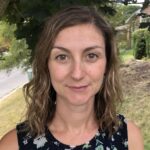
Dr. Heather Murphy
Department of Pathobiology, Ontario Veterinary College, University of Guelph
E-mail: Heather.murphy[at]uoguelph.ca
Heather Murphy is an Associate Professor and Tier II Canada Research Chair in One Health. She obtained her PhD in Environmental Engineering from the University of Guelph, Canada, where she focused on appropriate household water treatment technologies in rural Cambodia. Following her PhD, she worked for the United Nations International Emergency Children’s Fund (UNICEF) as a Water, Sanitation and Hygiene Specialist in Mali and Madagascar. She returned to academia in 2013 and completed a research fellowship with the Public Health Agency of Canada where she focused on quantifying the burden of waterborne disease on the Canadian population. In 2015 she joined Temple University’s College of Public Health where she was an Assistant Professor for 5 years and where she currently maintains an adjunct Associate Research Professor Position. In 2020, she joined the University of Guelph as an Associate Professor. Her research interests involve understanding and addressing water and health challenges in both developed and developing countries using a One Health approach. She leads the Water, Health and Applied Microbiology (WHAM) Lab.

Dr. Sam Sherchan
Morgan State University
E-mail: samendra.sherchan@morgan.edu
Dr. Sam Sherchan is currently serving as a director of Center for Climate Change and Health (CCCH) and Center of Research Excellence in Wastewater based Epidemiology (CREWE) and is an associate professor of environmental health at Morgan State University. He is also an adjunct research professor at Tulane University School of Public Health and Tropical Medicine. He received his PhD from the University of Arizona under Drs Charles Gerba and Ian Pepper. His research interests include water microbiology, environmental health science, water quality, treatment, water reuse, emerging pathogens, infectious diseases epidemiology water, sanitation, and hygiene in developing countries. In addition, over the past 15 years, he has gained considerable experience working with communities affected by climate change, natural disasters and water quality in the US and other low-income countries such as Haiti and Nepal. He currently serves as an associate editor for the Journal of Water and Health and BMC Infectious Diseases. He is also on the editorial boards of ACS Water, Pathogens and Science of the Total Environment.
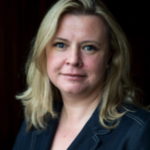
Ms. Maronel Steyn
Council for Scientific and Industrial Research, South Africa
E-mail: MSteyn[at]csir.co.za
Maronel holds a M. Tech degree in Environmental Health and has been employed at the Council for Scientific and Industrial Research (CSIR) in South Africa since 2005. She has more than 13 years’ research experience in water and health-related projects. Her experience includes health risk assessments (both chemical & microbiological human health risk assessments), environmental epidemiology, drinking water treatment, waste-water reuse, and water pollution microbiology, health economics, Burden of Disease and guideline development. Maronel has been involved in projects funded by various national and international organisations (e.g., DWS, Copper Development Association of South Africa, Agricultural Research Council, City of Cape Town, WRC, USAID, AU (e.g., ACT4SSAWS) and the EU (e.g., RECLAIM, LIVEDIVERSE)). Some of her recently acquired skills are tissue culture, toxicity assessments and genetic impacts of human cell lines exposed to pollutants (e.g., crude oil, acid mine drainage) which currently also forms part of her PhD studies. Maronel has been a member of both the Water Institute of Southern Africa (WISA) and International Water Association (IWA) for more than ten years. She currently also serves on the management committee for the IWA Specialist Group: Metals and Related Substances in Drinking Water.
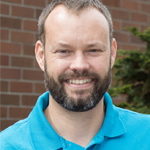
Dr. John Scott Meschke
School of Public Health, University of Washington, USA
E-mail: jmeschke[at]uw.edu
Dr. Meschke is a Professor in the Department of Environmental and Occupational Health Sciences and Adjunct Professor in the Department of Civil and Environmental Engineering at the University of Washington. Dr. Meschke is an environmental and occupational health microbiologist by training, specializing in the fate, transport, detection, and control of pathogens in environmental media (Air, Water, Food, and Surfaces). His research interests include development of methods for environmental surveillance of Poliovirus and other enteric viruses, prevalence of antimicrobial resistant bacteria, and quantitative microbial risk assessment.

Dr. Kwanrawee Sirikanchana
Chulabhorn Research Institute, Thailand
E-mail: kwanrawee[at]cri.or.th
Kwanrawee (Joy) Sirikanchana is a senior scientist 1 at the Chulabhorn Research Institute (CRI). She received her Bachalor’s degree from the Department of Environmental Engineering, Chulalongkorn University, with first-class honors. Dr. Sirikanchana completed her Master’s and Ph.D. degrees at the Department of Civil and Environmental Engineering, University of Illinois at Urbana-Champaign, USA, focusing her work on bacterial and viral disinfection in drinking water. Her outstanding dissertation later won the prize in the Thailand Thesis Award, given by the National Research Council of Thailand. Dr. Sirikanchana received her postdoctoral training from the University of California, Davis, where she focused on microbial source tracking using molecular methods. Currently, Dr. Sirikanchana is conducting research and advising graduate students at the CRI, focusing on waterborne pathogens and microbial source tracking using culture and molecular techniques. She was awarded the New Face in Civil Engineering from the American Society of Civil Engineers in 2009, the IWA-HRWM Willie Grabow Young Investigator Award in 2015, the Young Alumnus Achievement Award from the University of Illinois at Urbana-Champaign in 2016, and the Kurita Water and Environmental Foundation (KWEF) – Asian Institute of Technology Research Award in 2016. She also serves as an Associate Editor of the Thai Environmental Engineering Journal.
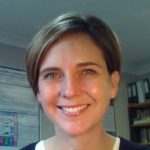
Dr. Susan Petterson
School of Medicine, Griffith University, Australia
E-mail: s.petterson[at]waterandhealth.com.au
Susan Petterson is the director of Water & Health Pty Ltd, and an Associate Professor in the School of Medicine at Griffith University, Australia. Susan serves as an editor for the Journal of Water and Health (IWA Publishing), and is a member of the Water Quality Advisory Committee (WQAC) responsible for the rolling revision of the Australian Drinking Water Guidelines. Susan is an environmental engineer with a particular interest in Quantitative Microbial Risk Assessment (QMRA) and the interpretation of environmental microbiological data to support evidence based public health.
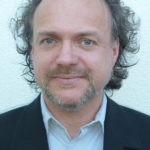
Prof. Andreas H. Farnleitner
Karl Landsteiner University for Health Sciences, 3500 Krems, Austria
TU Wien, Interuniversity Cooperation Centre for Water & Health, 1060 Vienna, Austria
E-mail: a.farnleitner[at]aon.at
I am full professor at the Karl Landsteiner University for Health Sciences and head of the Interuniversity Cooperation Centre for Water & Health (ICC Water & Health) at the TU Wien (www.waterandhealth.at). My research interests are in the field of faecal pollution diagnostics and management (e.g. detection of faecal pollution, microbial source tracking, and health risk assessment of pathogens) and the microbial ecology of ground- and drinking water resources. I am also editor for Water Science & Technology and the Global Water Pathogen Project (GWPP). For me, the HWRM specialist group is the most important authority in the field of microbial water quality and health and I am happy to serve these activities as a board member. My first conference of the HRWM group was in Swansea, Wales, UK in 2005.
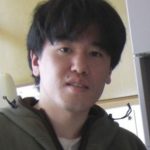
Prof. Eiji Haramoto
Interdisciplinary Center for River Basin Environment
University of Yamanashi, Japan
Tel: +81-55-220-8725
E-mail: eharamoto[at]yamanashi.ac.jp
Eiji Haramoto is an Associate Professor at Interdisciplinary Center for River Basin Environment (ICRE), University of Yamanashi, Japan. Dr. Haramoto received his Ph.D. degree at Department of Urban Engineering, the University of Tokyo, Japan, in March 2007, under the supervision of Dr. Hiroyuki Katayama. Between April 2007 and August 2008, he worked at Department of Water Supply Engineering, National Institute of Public Health, Japan, as a research fellow of Japan Society for the Promotion of Science (JSPS), and then he was employed at University of Yamanashi as an Assistant Professor in September 2008 and promoted to an Associate Professor in January 2015. His research interests include the development of concentration/detection methods for waterborne pathogens (viruses, protozoa, and bacteria), the spatial and temporal prevalence of waterborne pathogens and their indicators in aquatic environments, the reduction of waterborne pathogens during water/wastewater treatment processes, and Microbial Source Tracking (MST) using host-specific microbial genetic markers. Dr. Haramoto is now Editorial Board Members of Applied and Environmental Microbiology (AEM) and Water (MDPI). He has published ~100 peer-reviewed papers, including 9 in AEM, 6 in Water Research, 9 in Food and Environmental Virology, 3 in Environmental Science & Technology, and 3 in Water Science and Technology. He has supervised some students from Nepal, by participating an international collaborative study, the Science and Technology Research Partnership for Sustainable Development (SATREPS) program of Japan International Cooperation Agency (JICA) and Japan Science and Technology Agency (JST), entitled “Hydro-microbiological approach for water security in Kathmandu Valley, Nepal.”
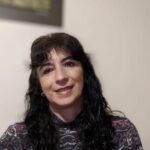
Dr. Veronica Rajal
National University of Salta, Argentina
E-mail: vbrajal[at]gmail.com

Prof. Anne Roiko
Griffith University, Australia
E-mail: a.roiko[at]griffith.edu.au
Professor Anne Roiko leads the discipline of Environmental Health within the School of Pharmacy and Medical Sciences at Griffith University. She has over 30 years of experience as an environmental health scientist, 12 years of which were spent working abroad (Finland and Hong Kong) in research, teaching and regulatory roles. Anne is recognised for her commitment to transdisciplinarity and for working effectively with government agencies, industry and community groups, to transfer risk-based evidence about environmental health issues into policy and practice. She was appointed as an inaugural member of the enHealth Council, Australia’s peak Environmental Health Advisory Committee in 1999, as well as the National Health and Medical Research Council’s (NH&MRC) Drinking Water Coordinating Group and represented Griffith University on the Medical Deans’ Working Group on Climate Change and Health. Currently she serves on several key scientific advisory committees, as a board member of the International Water Association’s Health-Related Water Microbiology Group , as a member of NH&MRC’s Recreational Water Quality Advisory Committee, and regionally, as a member of the Science Committee for Healthy Land & Water, where she also chairs the Human Health Scientific Expert Panel. As an educator, Anne is committed to preparing future health professionals to deal with current and emerging environmental health risks, many of which are being exacerbated by climate change.

Prof. Gang Liu
Research Center for Eco-Environmental Sciences, Chinese Academy of Sciences
E-mail: gliu[at]rcees.ac.cn
Gang Liu is a professor at Research Center for Eco-Environmental Sciences, Chinese Academy of Sciences, and the deputy director of Key Lab on Drinking Water Science and Technology. He is visiting professor at Sanitary Engineering, Delft University of Technology. Gang did his PhD at Delft Univesity of Technology on the microbial ecology of drinking water distribution system.Before moving back China, and spent more than 10 years in the Netherlands before moving back China. He is the co-EIC (editor-in-chief) of IWA flagship journal Water Science and Technology. His lab focuses on green water processes, with research interests include biosafety and biostability water environment, water metaviromics, microbial ecology of engineered water systems, and nature based water purification.
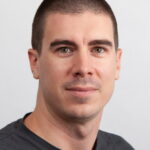
Dr. Émile Sylvestre
Department of Water Management, Delft University of Technology
E-mail: e.sylvestre[@]tudelft.nl
Émile Sylvestre is an Assistant Professor in the Department of Water Management at Delft University of Technology, Netherlands. Trained as a civil engineer, Émile specialises in the fate and behaviour of pathogenic microorganisms within engineered water systems. His research interests include the development of methods to monitor water quality, assess the efficacy of water treatment processes, and evaluate human exposure to pathogenic microorganisms via drinking water, wastewater, and aerosols. Through Quantitative Microbial Risk Assessment, he aims to elucidate the potential health implications of these exposures, helping to guide public health decisions.
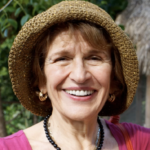
Honorary Board Member: Manja Blazer
Water-Related Disease News
Recent Posts
- Do storm overflows influence AMR in the environment and is this relevant to human health? A UK perspective on a global issue
- It’s getting hot in here: Effects of heat on temperature, disinfection, and opportunistic pathogens in drinking water distribution systems
- Quantitative microbial risk assessment (QMRA) tool for modelling pathogen infection risk to wastewater treatment plant workers
- Using machine learning models to estimate Escherichia coli concentration in an irrigation pond from water quality and drone-based RGB imagery data
- Journal of Water & Health Special Issue on Drinking Water Safety Plans
Archives
- July 2024 (6)
- June 2024 (12)
- May 2024 (17)
- April 2024 (20)
- March 2024 (11)
- February 2024 (12)
- January 2024 (17)
- December 2023 (11)
- November 2023 (14)
- October 2023 (7)
- September 2023 (6)
- August 2023 (17)
Annual archive
Categories
- Events (59)
- Awards (9)
- HRWM News (113)
- Projects (106)
- IWA News (10)
- Water-related Disease News (11)
- Featured Publications (806)
- Jobs (44)
Recent Comments